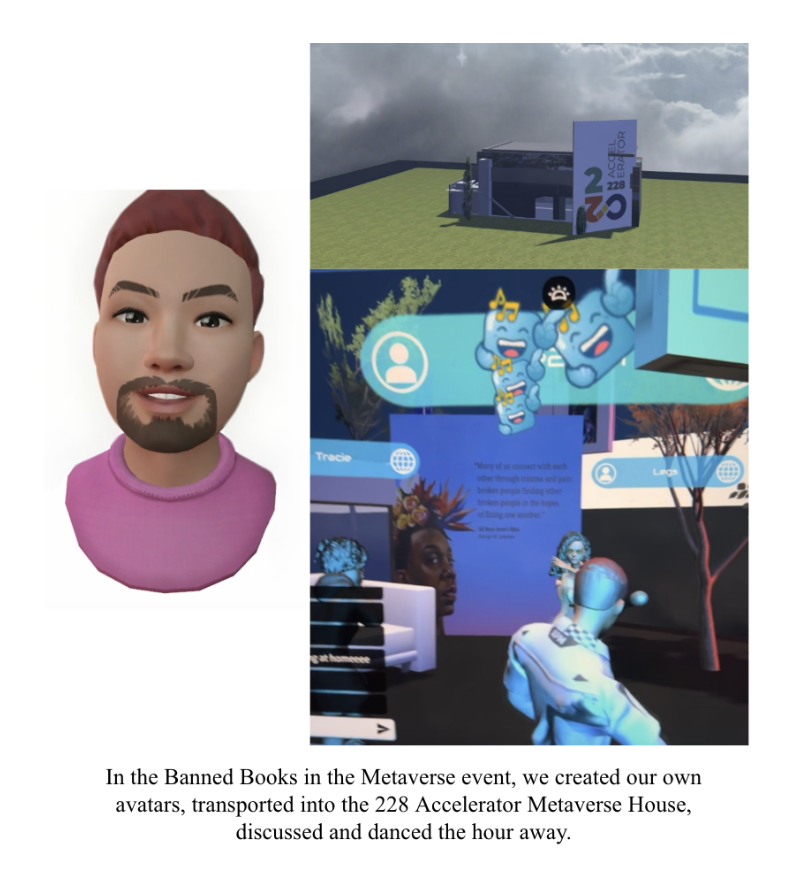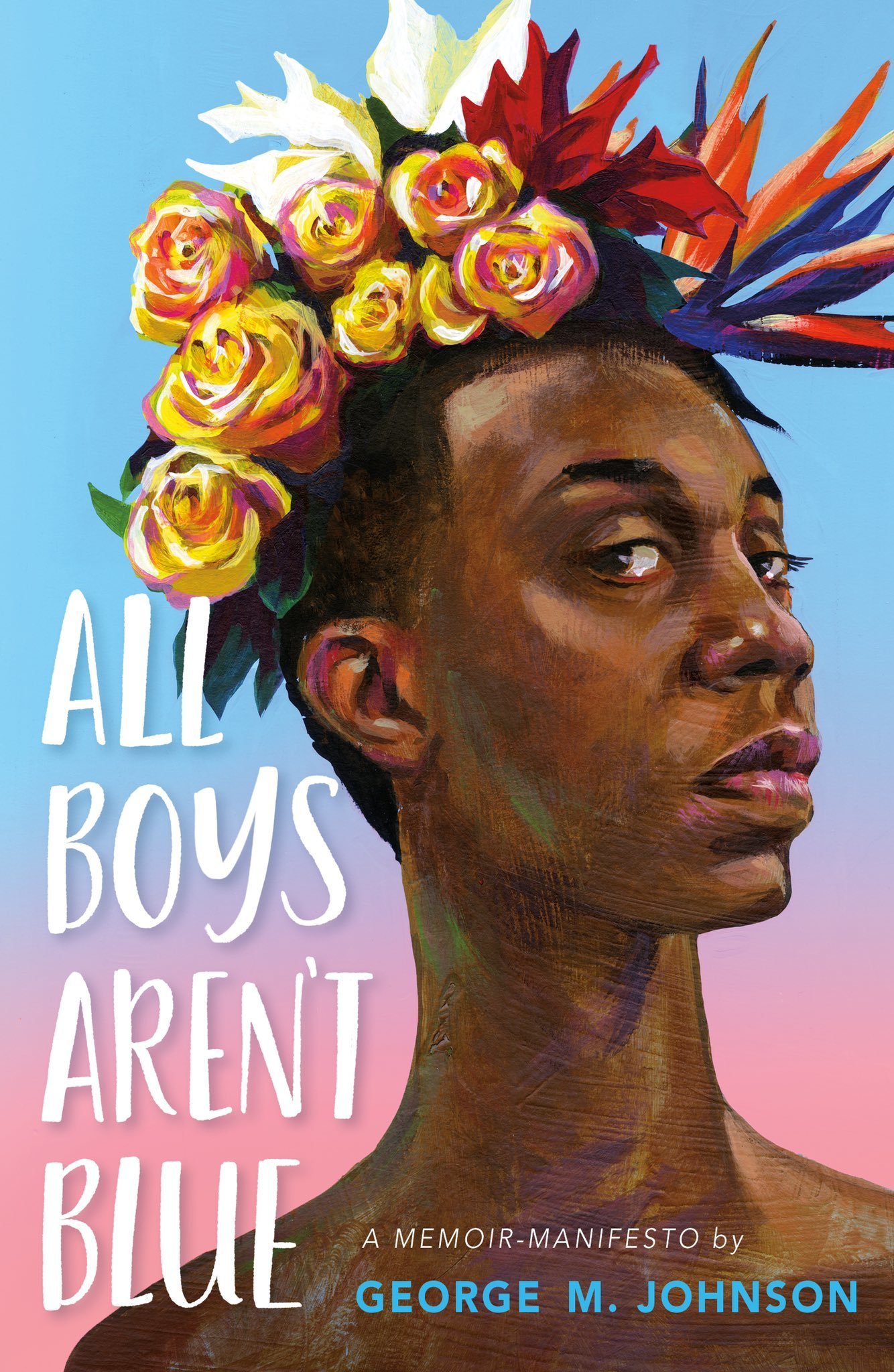The Revolution Will Not Be Televised, It Will Be Played
By Andre Zarate and Caroline Hill
As a thirty-one year old who identifies as a Filipinx, gay educator, I’m still navigating the alignment of my identity and purpose with the rest of the world. If there is one thing that has saved me in this process and helped me imagine a life where I can be exactly unapologetically myself, it is through the grace and love of books. From walking in the shoes of queer protagonists and distilling the words of queer authors, I am able to find belief in myself and create a world within my body that is safe, brave, and kind. However, book bans in the United States that are targeted at educational institutions and libraries are accelerating at such a fast pace. When you look at the themes of the books in question, a large number of them contain LGBTQ+ protagonists, gender expression, and are written by Black, Brown, and LGBTQ+ authors. Policies and legislations are aiming to silence, erase, and make invisible the livelihoods and existence of LGBTQ+ people.
This narrative is shared with the most recent 2021 GLSEN (Gay Lesbian Straight Education Network) School Climate Survey where it is reported that 81.8 percent of LGBTQ+ students felt “unsafe in school because of at least one of their actual or perceived personal characteristics” (Kosciw et al., 2022). At the same time, 71.6 percent of students reported that there was no representation of LGBTQ+ related topics taught in any classroom curriculum (Kosciw et al., 2022). These statistics are absolutely harrowing and made me think of all the teachers and students who were missing out from these meaningful, critical pieces of literature. More importantly, how are they going to see themselves as loving, caring, and enough?
Taking Banned Educational Material Into the Metaverse
As the founder of House of Legends (HoL), a future-school model that centers the needs of LGBTQ+ students of color, I partnered with Caroline Hill from the 228Accelerator to imagine, dream, and create on this very issue.
We recognize the systemic barriers that are placed on society and within our educational structure. We acknowledge the very real feeling of fear in educators who want to push back on this system, but do not know how. We very much recognize that these attempts to ban, the removal of books from shelves, and the erasure of LGBTQ+ narratives is an act of violence to queer people both physically and emotionally to the body.
Therefore, we centered the essential question around these themes:
What if we found a way to teach these banned books outside of the school system?
How could we ensure a space that is safe, brave, and kind for all participants, centering the identities of LGBTQ+ people of color?
What if we could take banned educational content into the Metaverse?
This is where the collaboration of HoL x 228Accelerator was born, a series called Banned Books in the Metaverse. Our first session occurred on November 2nd, 2022. The goal is to provide a safe space for people to read, appreciate, exist, and love our banned books. This is symbolized as our act of resistance and honors LGBTQ+ identities as human. We chose the book, All Boys Aren’t Blue, by George Johnson because of his testimony for young queer people of color. The topics covered include gender identity, brotherhood, toxic masculinity, marginalization, Black joy, and more. Johnson’s book has been one of the many books labeled as banned due to its contents; it was the perfect book to uplift in our first Metaverse space event.
Every person who participated that evening created an avatar that represents who they are without limits. We were then transported to the 228 Accelerator Metaverse House, a beautiful two room house which felt like an island in the sky. There was definitely a lot of green space and time to explore the different parts of the home. The 228 Accelerator Metaverse House was set up to be like a coffee shop space. It was filled with posters of inspirational, revolutionary people fighting for our freedoms in one room and the other for holding discussions with guiding questions pasted through the wall space. There was a microphone in the front for introductions and moderating conversations.
As soon as people arrived, we started with exploration. We even took time to dance both in the Metaverse and physically in our chairs to help us get started. Once we were settled, we took the majority of the time holding conversations about children, identity, and personal experiences of exploring our identity. It was absolutely beautiful. We shared our favorite quotations and took the time to unpack them. We were extremely vulnerable with each other and grounded the experiences of the protagonist with our own. My favorite quote that I shared in the space was this:
“I used to daydream a lot as a little boy. But in my daydreams I was always a girl. I would daydream about having long hair and wearing dresses. And looking back, it wasn’t because I thought I was in the wrong body, but because of how I acted more girly. I thought a girl was the only thing I could be. I struggled with being unable to express myself in my fullest identity. One that would encompass all the things that I liked while still existing in the body of a boy. However, I was old enough to know that I would find safety only in the arms of suppression - hiding my true self - because let’s face it, kids can be cruel” (Johnson, 2020, p. 22)
I think about little Andre, who wanted to outwardly be the pink ranger, the one who got reprimanded for playing dress-up, the little boy who could not express how he felt about who he was to anyone. I shared with the group how my suppression of my identity led to more fear, confusion, and at times not wanting to be here. I even shared a small win with them: painting my nails blue for my graduate school weekend. My peers responded with celebration but also thoughts about how we need to give this room of exploration, care, and most importantly, love to everyone. Someone even asked how we could work up a space where we do not center the binary labels.
When the event was over, we danced it off yet again, both in the space and in our chairs. Our queen, Beyonce, of course. I was leaving off a high and contemplating how this can continue to be possible in our world.
Imagine a world where we can show up exactly how we were meant to be in space. Imagine a world where we can express ourselves without judgment and share our vulnerabilities with our peers. Imagine a world where the priority is safety, courage, and love. The conditions in the Banned Books in the Metaverse space allowed for this to happen amongst a group of adults. We are continuing to pilot and play around with the Metaverse space because there is something special here as it relates to the education revolution—imagine if all students, particularly queer students, could access banned book content anywhere around the country, or even more…around the world.
The policies and legislations that censor, control, and erase our bodies and communities are meant to scare us. They are meant to put us in our place. They are meant to silence us. The expectation is that we will continue to protest, fight, write, and challenge. And the thing is, we will. But in this particular fight, the revolution will not be televised, it will be played in the Metaverse.
Andre Zarate is the Founder of House of Legends, a future-school model that centers students of color who identify as part of the LGBTQ+ community. You can follow him on Twitter at @chasingdrdre and contact him at andre@228accelerator.com.
Caroline Hill is the founder of the 228Accelerator, which fuels the scaling of radical and transformative ideas in schools, organizations, and communities. You can follow her on Twitter at @228accelerator.
To be a part of the conversation, sign up for our biweekly newsletter to receive insights and updates from 228 Accelerator.
References
Kosciw, J. G., Clark, C. M., & Menard, L. (2022). The 2021 National School Climate Survey: The experiences of LGBTQ+ youth in our nation’s schools. New York: GLSEN.


